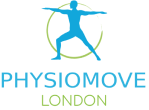
We know, we know. Winter is here, days are shorter and it can seem a bit too cold to prioritise a workout routine instead of snuggling up for a cosy evening on the couch. However, staying active during the winter is crucial for maintaining your overall well-being. Whether you’re contending with the festive season or gearing up for winter sports.
Embrace the Winter Workout
The drop in temperature doesn’t mean you have to abandon your fitness goals. While there’s no definitive evidence that exercise boosts your immune system, maintaining regular physical activity can influence your vulnerability to common illnesses like the cold. So, don’t let the winter blues freeze your fitness routine.
As the festive season approaches, the abundance of celebrations can lead to a shift in priorities. While indulging in festive feasts and socialising is important, it’s equally crucial to safeguard your health and fitness. Make sure to incorporate mood boosting exercises to keep your mind and body active during your recess. For instance, a study found that aerobic exercises such as running, swimming, cycling, and dancing have been particularly effective in improving mood states, so invite your family and friends to join you in keeping an active spirit.
Last but not least, this time of the year often brings increased stress due to social commitments, holiday preparations, and a busier workload before the festive break. Combatting stress is vital, and exercise is a proven stress buster. Physical activity reduces stress hormones and releases endorphins, natural mood lifters and pain relievers. A study saw that individuals who engaged in regular physical exercise exhibited lower heart rates at rest and better cardiovascular responses to stress compared to non-exercisers. Additionally, regular exercisers showed a more positive mood state after a stress-inducing task compared to non-exercisers However, make sure to not overdo it so you don’t compromise the rest of your winter recess.
Preparing for Winter Sports
For those planning winter sports adventures, preparation is key. Skiing and snowboarding demand specific muscle strength, flexibility, and technique. So conditioning your body before hitting the slopes can significantly reduce the risk of injuries. Here are some things you should keep in mind before hitting the slopes:
Cardiovascular Fitness: Engage in short, high-intensity exercises, like sprinting or plyometric training, to simulate the rapid changes in speed experienced in winter sports. Interval training, three to four times a week, for 20 to 30 minutes, can enhance cardiovascular fitness. Multiple recent studies indicate a connection between consistent physical activity and reduced markers of inflammation, enhanced metabolic well-being, lowered risk of heart failure, and increased overall survival rates.
Muscle Strength: Strengthen your core, quadriceps, hamstrings, and glutes through exercises like plank holds, lunges, squats, and deadlifts. A strong core is crucial for balance and protecting the spine during skiing and snowboarding. Take a look at one of our previous blogs about incorporating resistance training into your routine for more information.
Alignment and Posture: Practise the skiing position daily to familiarise your body with the posture needed for winter sports. This helps in ensuring efficiency in technique and minimises the risk of injury or joint pain. You can find 10 easy goals to help you achieve better posture and alignment on our instagram!
Balance and Agility: Improve balance with exercises like standing on a Bosu ball or split squats. Enhance agility with exercises such as single-leg forward hops and speed skaters. Check out our content about this topic for some quick tips.
Flexibility: Counteract the effects of prolonged sitting, common in office-based jobs, by incorporating stretching exercises. Yoga and Pilates can be especially beneficial for improving flexibility and balance, ultimately helping you during your winter sports practices.
Nutrition: Keep yourself hydrated and maintain a healthy and balanced diet, even amid the temptations of festive indulgences in popular ski resorts.
While these tips offer a starting point, booking a consultation with us here at Physiomove London before initiating a new exercise program is advisable, to ensure that it aligns with your specific needs and goals. If you’re planning a winter sports holiday, a ski assessment might be just what you need and can further tailor your preparation, reducing the risk of injuries.
In the end, winter doesn’t have to be a hindrance to your fitness and recovery journey. Whether navigating the festive season or preparing for winter sports, a proactive approach, balanced with the right exercise regimen and care, can keep you active, healthy, and injury-free throughout the winter months.
Don’t let the cold weather be an excuse; instead, let it be a motivation to discover new ways to stay fit and enjoy the season to the fullest.

